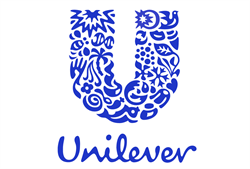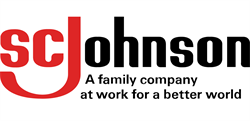CORPORATE ACTION: Kraft Heinz
Activist-Investor Files Shareholder Resolution Requiring Kraft Heinz To Improve Packaging Recyclability And Labels
 California chemical engineer and activist-investor Jan Dell filed a shareholder resolution with Kraft Heinz to force the food manufacturer to be more transparent about how it recycles its plastic packaging. Dell said her action is aimed at ensuring the company reduces its risk against lawsuits over its recycling labels and urges the company to improve the recyclability of its plastic packaging. Shareholders are currently voting on the resolution ahead of the company’s May 2, 2024, annual meeting.[Image Credit: © The Kraft Heinz Company]
California chemical engineer and activist-investor Jan Dell filed a shareholder resolution with Kraft Heinz to force the food manufacturer to be more transparent about how it recycles its plastic packaging. Dell said her action is aimed at ensuring the company reduces its risk against lawsuits over its recycling labels and urges the company to improve the recyclability of its plastic packaging. Shareholders are currently voting on the resolution ahead of the company’s May 2, 2024, annual meeting.[Image Credit: © The Kraft Heinz Company]
CORPORATE ACTION: Nestlé
Nestlé Plans To Use Recyclable Shrink Sleeves On Nesquik Range Of Milk Products
 Nestlé said it plans to start using a new recyclable shrink sleeve label on its Nesquik range of ready-to-drink flavored milk products in the United States. Designed with a print technology that blocks light, prolonging the product’s shelf life, the crystallized PET sleeves mean the cap, bottle, and sleeve can be recycled together in the country. Also, the company revealed its plan to use the sleeve technology with its other beverage products.[Image Credit: © Nestlé]
Nestlé said it plans to start using a new recyclable shrink sleeve label on its Nesquik range of ready-to-drink flavored milk products in the United States. Designed with a print technology that blocks light, prolonging the product’s shelf life, the crystallized PET sleeves mean the cap, bottle, and sleeve can be recycled together in the country. Also, the company revealed its plan to use the sleeve technology with its other beverage products.[Image Credit: © Nestlé]
CORPORATE ACTION: Procter & Gamble
P&G, Dow Join Forces To Develop Recycling Technology For Hard-To-Recycle Plastic Packaging
 Procter & Gamble Company signed a joint development agreement with Dow to create new recycling technology for converting hard-to-recycle plastic packaging into recycled polyethylene with near-virgin quality and low levels of greenhouse emissions. The global partnership starts immediately and involves combining the companies’ respective patented technologies and knowledge bases. Also, the partners will bring their expertise in materials science, manufacturing strengths and experience in management of large-scale supply chains.[Image Credit: © Procter & Gamble]
Procter & Gamble Company signed a joint development agreement with Dow to create new recycling technology for converting hard-to-recycle plastic packaging into recycled polyethylene with near-virgin quality and low levels of greenhouse emissions. The global partnership starts immediately and involves combining the companies’ respective patented technologies and knowledge bases. Also, the partners will bring their expertise in materials science, manufacturing strengths and experience in management of large-scale supply chains.[Image Credit: © Procter & Gamble]
CORPORATE ACTION: Unilever
Unilever Outlines Changes To Its Sustainability Strategy
.png&width=250&height=229) Unilever’s CEO, Hein Schumacher, talked about how the company has for years “put sustainability firmly at the heart of our business strategy” and how the focus must change to accelerate delivery of sustainability and with greater impact, “by making sustainability progress integral to business performance”. Its new strategy aims to make the company “more focused in allocating our resources towards our biggest sustainability priorities”; “more urgent in driving actions towards our long-term ambitions’; and “more systemic in our advocacy to address the enablers and blockers of progress outside of our direct control”. The four main areas of focus are climate, nature, plastics and livelihoods. Schumacher says that long-term commitments remain fundamental, but “we also need to ensure we deliver now”, and Unilever is “short-terming” its approach, "hard-wiring” the necessary steps “into the strategic cycles that most companies plan around”. He added that the company is reinforcing its focus on opportunities that “largely depend on global value chain transformations, technological innovations, and public policies to make them possible and affordable”. And it aims to use its voice more forcefully. An important part of this is leading the demand for a global plastics treaty that “sets binding rules, targets and standards on packaging redesign, reuse/refill models, extended producer responsibility (EPR), waste processing, and the elimination of avoidable plastics”. [Image Credit: © Unilever]
Unilever’s CEO, Hein Schumacher, talked about how the company has for years “put sustainability firmly at the heart of our business strategy” and how the focus must change to accelerate delivery of sustainability and with greater impact, “by making sustainability progress integral to business performance”. Its new strategy aims to make the company “more focused in allocating our resources towards our biggest sustainability priorities”; “more urgent in driving actions towards our long-term ambitions’; and “more systemic in our advocacy to address the enablers and blockers of progress outside of our direct control”. The four main areas of focus are climate, nature, plastics and livelihoods. Schumacher says that long-term commitments remain fundamental, but “we also need to ensure we deliver now”, and Unilever is “short-terming” its approach, "hard-wiring” the necessary steps “into the strategic cycles that most companies plan around”. He added that the company is reinforcing its focus on opportunities that “largely depend on global value chain transformations, technological innovations, and public policies to make them possible and affordable”. And it aims to use its voice more forcefully. An important part of this is leading the demand for a global plastics treaty that “sets binding rules, targets and standards on packaging redesign, reuse/refill models, extended producer responsibility (EPR), waste processing, and the elimination of avoidable plastics”. [Image Credit: © Unilever]
Unilever Helps Launch Competition Promoting Innovation In Plastic Recycling In Vietnam
 Unilever Vietnam partnered with the country’s Ministry of Natural Resources and Environment, the British Chamber of Commerce, the Startup Vietnam Foundation, the British Embassy and Standard Chartered Bank to launch a competition aimed at promoting innovations in plastic waste collection and recycling. The contest seeks to push a circular economic model in plastic waste management and support the creation and implementation of product and packaging recycling responsibility rules for manufacturers and importers. The contest is open to both individuals and organizations with sustainability-related services, products and technologies.[Image Credit: © Unilever]
Unilever Vietnam partnered with the country’s Ministry of Natural Resources and Environment, the British Chamber of Commerce, the Startup Vietnam Foundation, the British Embassy and Standard Chartered Bank to launch a competition aimed at promoting innovations in plastic waste collection and recycling. The contest seeks to push a circular economic model in plastic waste management and support the creation and implementation of product and packaging recycling responsibility rules for manufacturers and importers. The contest is open to both individuals and organizations with sustainability-related services, products and technologies.[Image Credit: © Unilever]
Unilever Pushes Adoption Of Extended Producer Responsibility To Promote Sustainability In Vietnam
 Unilever Vietnam is promoting extended producer responsibility as an effective environmental policy aimed at advancing circular economy in plastic waste management in the country. With three years of experience in local EPR, the company built a working plastic management strategy with three main objectives: improving packaging materials to enhance recyclability, reducing the use of virgin plastic and collecting and recycling more plastic on the market. However, the company said the local recycling industry still needs to be developed, with only 33 percent of plastic waste being recycled, due to low demand for post-consumer resin plastic.[Image Credit: © Unilever]
Unilever Vietnam is promoting extended producer responsibility as an effective environmental policy aimed at advancing circular economy in plastic waste management in the country. With three years of experience in local EPR, the company built a working plastic management strategy with three main objectives: improving packaging materials to enhance recyclability, reducing the use of virgin plastic and collecting and recycling more plastic on the market. However, the company said the local recycling industry still needs to be developed, with only 33 percent of plastic waste being recycled, due to low demand for post-consumer resin plastic.[Image Credit: © Unilever]
CORPORATE ACTION: Other
Murad Introduces Cosmetic Products With Refillable Packaging

Murad introduced refillable versions of its Retinal ReSculpt Overnight Treatment and Cellular Hydration Barrier Repair Serum cosmetic products. The brand said the refills help cut packaging materials by as much as 85 percent, while saving 15 percent on cost.[Image Credit: © Murad / PRNewswire]
CAMPAIGNS, COMMITMENTS & NGOs
Beauty Retailers Launch Programs To Reduce, Recycle, Reuse Plastic Packaging
 Beauty retailers Kiehl’s, Sephora, Shoppers Drug Mart and Ulta launched initiatives aimed at reducing their use of plastic packaging and contribution towards plastic pollution. Kiehl’s Since 1851 line is working with artist Benjamin Von Wong to launch the Single-Use Reflections sculpture urging viewers to think about how systemic change and personal efforts can help the environment. In Canada, Shoppers Drug Mart launched its Quo Beauty Cosmetics Free Recycling Program, while Ulta Beauty expanded its partnership with Pact Collective to widen the Beauty Drop-Off recycling program.[Image Credit: © Monfocus from Pixabay]
Beauty retailers Kiehl’s, Sephora, Shoppers Drug Mart and Ulta launched initiatives aimed at reducing their use of plastic packaging and contribution towards plastic pollution. Kiehl’s Since 1851 line is working with artist Benjamin Von Wong to launch the Single-Use Reflections sculpture urging viewers to think about how systemic change and personal efforts can help the environment. In Canada, Shoppers Drug Mart launched its Quo Beauty Cosmetics Free Recycling Program, while Ulta Beauty expanded its partnership with Pact Collective to widen the Beauty Drop-Off recycling program.[Image Credit: © Monfocus from Pixabay]
ALLIANCES, PARTNERSHIPS & JVs
World Needs International Treaty To Deal With Plastic Waste Pollution
 In a Newsweek op-ed, SC Johnson Chairman and CEO Fisk Johnson and M. Sanjayan, CEO of Conservation International, explained their support for a global plastics treaty to deal with the worldwide problem of plastic waste pollution. Plastic waste, and microplastics in particular, do not recognize national borders and therefore countries need to collaborate to solve this problem. Developed countries should provide financial and technical assistance to developing countries in setting up strong waste collection systems. Also, every country must do its part to set up national policies aimed at dealing with plastic waste pollution.[Image Credit: © S.C. Johnson & Son Inc.]
In a Newsweek op-ed, SC Johnson Chairman and CEO Fisk Johnson and M. Sanjayan, CEO of Conservation International, explained their support for a global plastics treaty to deal with the worldwide problem of plastic waste pollution. Plastic waste, and microplastics in particular, do not recognize national borders and therefore countries need to collaborate to solve this problem. Developed countries should provide financial and technical assistance to developing countries in setting up strong waste collection systems. Also, every country must do its part to set up national policies aimed at dealing with plastic waste pollution.[Image Credit: © S.C. Johnson & Son Inc.]
CONSUMER & PUBLIC OPINION
Survey Shows 63 percent Of Americans Support Global Plastics Treaty
 In the US, 63 percent of respondents said they support a Global Plastics Treaty that would ban single-use packaging, according to Greenpeace International. Details of the global survey also revealed that 75 percent of American respondents said they would use refillable and reusable packaging if it was “more convenient or more cost-effective”. Also, 82 percent of respondents to the survey, which included respondents in several countries, including the UK, Canada, India, Brazil and Egypt, said they support reduction in plastic production to end plastic pollution.[Image Credit: © Nick Fewings on Unsplash]
In the US, 63 percent of respondents said they support a Global Plastics Treaty that would ban single-use packaging, according to Greenpeace International. Details of the global survey also revealed that 75 percent of American respondents said they would use refillable and reusable packaging if it was “more convenient or more cost-effective”. Also, 82 percent of respondents to the survey, which included respondents in several countries, including the UK, Canada, India, Brazil and Egypt, said they support reduction in plastic production to end plastic pollution.[Image Credit: © Nick Fewings on Unsplash]
Survey Says 1/3 Of American Adults Reduced Use Of Plastic Products
 In the US, about a third of adults say they have decreased their use of plastic products over the past five years, but data from the most recent NPR/PBS NewsHour/Marist survey also revealed that 47 percent showed no changes in their levels of use of water bottles, straws and other plastic products. Also, survey results showed households with annual income above $50,000 and college graduates were more likely to report a decline in their use of single-use plastics. Political affiliations also seemed to play a role, with Democrats and independents reporting more of a decrease in their plastic use compared with Republicans.[Image Credit: © isidingo from Pixabay]
In the US, about a third of adults say they have decreased their use of plastic products over the past five years, but data from the most recent NPR/PBS NewsHour/Marist survey also revealed that 47 percent showed no changes in their levels of use of water bottles, straws and other plastic products. Also, survey results showed households with annual income above $50,000 and college graduates were more likely to report a decline in their use of single-use plastics. Political affiliations also seemed to play a role, with Democrats and independents reporting more of a decrease in their plastic use compared with Republicans.[Image Credit: © isidingo from Pixabay]
PACKAGING REDESIGNS
På(fyll)’s Circular Home Refill Service Removes Plastic Waste From Equation
 Norway’s På(fyll) aims to eliminate plastic waste by providing home delivery of household products in reusable packaging. Positioned as a modern version of the traditional milkman model, the company’s circular home refill service invites consumers to place orders for refilled containers delivered to their homes. Consumers can reorder by scanning the QR code on the container or going to the company’s website, pafyll.com. Used containers are collected, washed, refilled and used repeatedly. Orkla Home and Personal Care is supporting the new business.[Image Credit: © Påfyllsystemer AS]
Norway’s På(fyll) aims to eliminate plastic waste by providing home delivery of household products in reusable packaging. Positioned as a modern version of the traditional milkman model, the company’s circular home refill service invites consumers to place orders for refilled containers delivered to their homes. Consumers can reorder by scanning the QR code on the container or going to the company’s website, pafyll.com. Used containers are collected, washed, refilled and used repeatedly. Orkla Home and Personal Care is supporting the new business.[Image Credit: © Påfyllsystemer AS]
US Toothpaste Companies Adopt HDPE-Compatible Recyclable Packaging Tubes
 According to research company Stina Inc., about 90 percent of toothpaste tubes sold in the US today are manufactured in a manner that means they can be recycled with HDPE, and that 75 percent of squeezable plastic tubes have the “correct design”. At present, manufacturers accounting for 90 percent of the US toothpaste market have adopted the guidance issued by the Association of Plastic Recyclers for making tubes compatible with the HDPE recycling stream.[Image Credit: © Bruno from Pixabay]
According to research company Stina Inc., about 90 percent of toothpaste tubes sold in the US today are manufactured in a manner that means they can be recycled with HDPE, and that 75 percent of squeezable plastic tubes have the “correct design”. At present, manufacturers accounting for 90 percent of the US toothpaste market have adopted the guidance issued by the Association of Plastic Recyclers for making tubes compatible with the HDPE recycling stream.[Image Credit: © Bruno from Pixabay]
Report Highlights Emerging Trends In Sustainable Packaging
 Fiber-based packaging is finding an increasing number of applications that used to be exclusively for plastic, according to the Sustainable Packaging Coalition. Details from the first issue of the group’s Packaging Innovation Trends Report also highlighted other trends in sustainable packaging, such as the growing adoption of seaweed as a packaging material and the use of machine learning and artificial intelligence in recycling packaging with complex designs. Also, the report highlights the use of digital recyclability labelling and how cities are driving growth of reuse programs.[Image Credit: © Atlantic Packaging]
Fiber-based packaging is finding an increasing number of applications that used to be exclusively for plastic, according to the Sustainable Packaging Coalition. Details from the first issue of the group’s Packaging Innovation Trends Report also highlighted other trends in sustainable packaging, such as the growing adoption of seaweed as a packaging material and the use of machine learning and artificial intelligence in recycling packaging with complex designs. Also, the report highlights the use of digital recyclability labelling and how cities are driving growth of reuse programs.[Image Credit: © Atlantic Packaging]
The Sustainable Bottle Co. Offers 100 percent Environment-Friendly Aluminum Bottles For Beverage Industry
 GUNNA Drinks founder Melvin Jay launched The Sustainable Bottling Co., a manufacturer of aluminum bottle packaging for water, lemonades and other beverages. Jay said plastic bottles is one of the major contributors to single-use plastic waste pollution, a problem his company aims to help solve by providing fully recyclable aluminum bottles. His company plans to manufacture 330ml to 750ml bottles, which offer both convenience and sustainability.[Image Credit: © The Sustainable Bottling Co.]
GUNNA Drinks founder Melvin Jay launched The Sustainable Bottling Co., a manufacturer of aluminum bottle packaging for water, lemonades and other beverages. Jay said plastic bottles is one of the major contributors to single-use plastic waste pollution, a problem his company aims to help solve by providing fully recyclable aluminum bottles. His company plans to manufacture 330ml to 750ml bottles, which offer both convenience and sustainability.[Image Credit: © The Sustainable Bottling Co.]
POLICY, REGULATION & LEGAL
EU Parliament Adopts Rules To Reduce Plastic Packaging Waste
 Aimed at improving the sustainability of packaging and reducing packaging waste across the European Union, the European Parliament approved new rules to reduce the amount of plastic packaging waste and set packaging reduction targets. By 2030, packaging should be cut by 5 percent; by 2035, 10 percent; and by 2040, 15 percent. Also, certain types of single-use plastic packaging will be banned from January 2030. These include packaging for unprocessed fresh produce, packaging for foods and beverages used in restaurants and cafés, and miniature packaging typically used in hotels and the like.[Image Credit: © Ralph from Pixabay]
Aimed at improving the sustainability of packaging and reducing packaging waste across the European Union, the European Parliament approved new rules to reduce the amount of plastic packaging waste and set packaging reduction targets. By 2030, packaging should be cut by 5 percent; by 2035, 10 percent; and by 2040, 15 percent. Also, certain types of single-use plastic packaging will be banned from January 2030. These include packaging for unprocessed fresh produce, packaging for foods and beverages used in restaurants and cafés, and miniature packaging typically used in hotels and the like.[Image Credit: © Ralph from Pixabay]
INNOVATION & TECHNOLOGY
University Of Saskatchewan Scientists Develop Bioplastic That Absorbs Phosphate From Water
 University of Saskatchewan chemistry professor Lee Wilson and his research team developed a bioplastic material that can absorb excess phosphate from water and function as a fertilizer when decomposing. According to a paper published in the “Royal Society of Chemistry Sustainability Journal”, the bioplastic material is a “biocomposite pellet that contains a marine polysaccharide, eggshells, and wheat straw”. [Image Credit: © Sören Funk on Unsplash]
University of Saskatchewan chemistry professor Lee Wilson and his research team developed a bioplastic material that can absorb excess phosphate from water and function as a fertilizer when decomposing. According to a paper published in the “Royal Society of Chemistry Sustainability Journal”, the bioplastic material is a “biocomposite pellet that contains a marine polysaccharide, eggshells, and wheat straw”. [Image Credit: © Sören Funk on Unsplash]
RESEARCH
Study Finds Compostable Packaging Breaks Down Successfully At Composting Facilities
 Compostable packaging breaks down as designed at composting facilities that satisfy reasonable parameters, according to a study by the Composting Consortium. Details of the report, “Breaking It Down: The Realities of Compostable Packaging Disintegration in Composting Systems”, also revealed that compostable packaging and products achieved an average disintegration rate of 98 percent by surface area, while compostable fiber packaging recorded an 83 percent rate. The study also found out that some operating conditions, such as turning, agitation and consistent moisture levels above 50 percent, enhance breakdown of fiber packaging and products.[Image Credit: © Closed Loop Partners]
Compostable packaging breaks down as designed at composting facilities that satisfy reasonable parameters, according to a study by the Composting Consortium. Details of the report, “Breaking It Down: The Realities of Compostable Packaging Disintegration in Composting Systems”, also revealed that compostable packaging and products achieved an average disintegration rate of 98 percent by surface area, while compostable fiber packaging recorded an 83 percent rate. The study also found out that some operating conditions, such as turning, agitation and consistent moisture levels above 50 percent, enhance breakdown of fiber packaging and products.[Image Credit: © Closed Loop Partners]
Tetra Pak Research Shows Food And Beverage Manufacturers Willing To Pay For Sustainable Business Practices
 Research by Tetra Pak revealed that 77 percent of food and beverage manufacturers are willing to bear the cost of sustainable business practices. Of the companies that took part in the survey, half cited consumer demand as the driving force for adopting sustainable solutions for manufacturing and processing. This finding confirmed the finding of other Tetra Pak research that revealed that 74 percent of consumers are more likely to buy “if a brand talked about environmental topics”, while 42 percent think that sustainable packaging justifies higher prices.[Image Credit: © Tetra Pak International SA]
Research by Tetra Pak revealed that 77 percent of food and beverage manufacturers are willing to bear the cost of sustainable business practices. Of the companies that took part in the survey, half cited consumer demand as the driving force for adopting sustainable solutions for manufacturing and processing. This finding confirmed the finding of other Tetra Pak research that revealed that 74 percent of consumers are more likely to buy “if a brand talked about environmental topics”, while 42 percent think that sustainable packaging justifies higher prices.[Image Credit: © Tetra Pak International SA]
UK Study Reveals Discrepancy Between Self-Reported And Actual Plastic Recycling Rates

In the UK, 60 percent of adults said they always recycle plastic, while 34 percent said they usually do. However, national recycling rates show that these figures are not accurate, prompting the Environmental Services Association and British Plastics Federation to launch the PlasticRecyclingFacts.org campaign. The campaign aims to improve “consumer confidence” in recycling and deal with main barriers to effective household plastic recycling, including time pressure and confusion.[Image Credit: © Plasticrecyclingfacts.org]
OTHER NEWS
UK Postpones Launch Of Nationwide Deposit Return Scheme
 Instead of the planned 2025 launch, UK Government department Defra has delayed introducing the country’s Deposit Return Scheme until October 2027. Defra made the decision following extensive consultations and “collaborative efforts” with the Northern Ireland Executive, Welsh Government and Scottish Government. The proposed national DRS aims to improve recycling rates, reduce littering and move the country closer to a circular economy.[Image Credit: © Aleksandr Kadykov on Unsplash]
Instead of the planned 2025 launch, UK Government department Defra has delayed introducing the country’s Deposit Return Scheme until October 2027. Defra made the decision following extensive consultations and “collaborative efforts” with the Northern Ireland Executive, Welsh Government and Scottish Government. The proposed national DRS aims to improve recycling rates, reduce littering and move the country closer to a circular economy.[Image Credit: © Aleksandr Kadykov on Unsplash]
WRAP Opens Washington Office To Coordinate Actions Across The Americas
 Anti-climate change NGO WRAP opened a new office in Washington, D.C. Executive Director Leah Karrer will lead the office, established to coordinate action aimed at food waste, plastic pollution and textile waste across North, Central and South America. WRAP in the Americas is working with partners in Brazil for the launch of the first nationwide food waste voluntary agreement in the country. The group will publish a report on the impact of the agreement and other similar deals worldwide before the next round of the Global Plastics Treaty negotiations.[Image Credit: © The Waste and Resources Action Programme]
Anti-climate change NGO WRAP opened a new office in Washington, D.C. Executive Director Leah Karrer will lead the office, established to coordinate action aimed at food waste, plastic pollution and textile waste across North, Central and South America. WRAP in the Americas is working with partners in Brazil for the launch of the first nationwide food waste voluntary agreement in the country. The group will publish a report on the impact of the agreement and other similar deals worldwide before the next round of the Global Plastics Treaty negotiations.[Image Credit: © The Waste and Resources Action Programme]
Copyright 2026 Business360, Inc.

